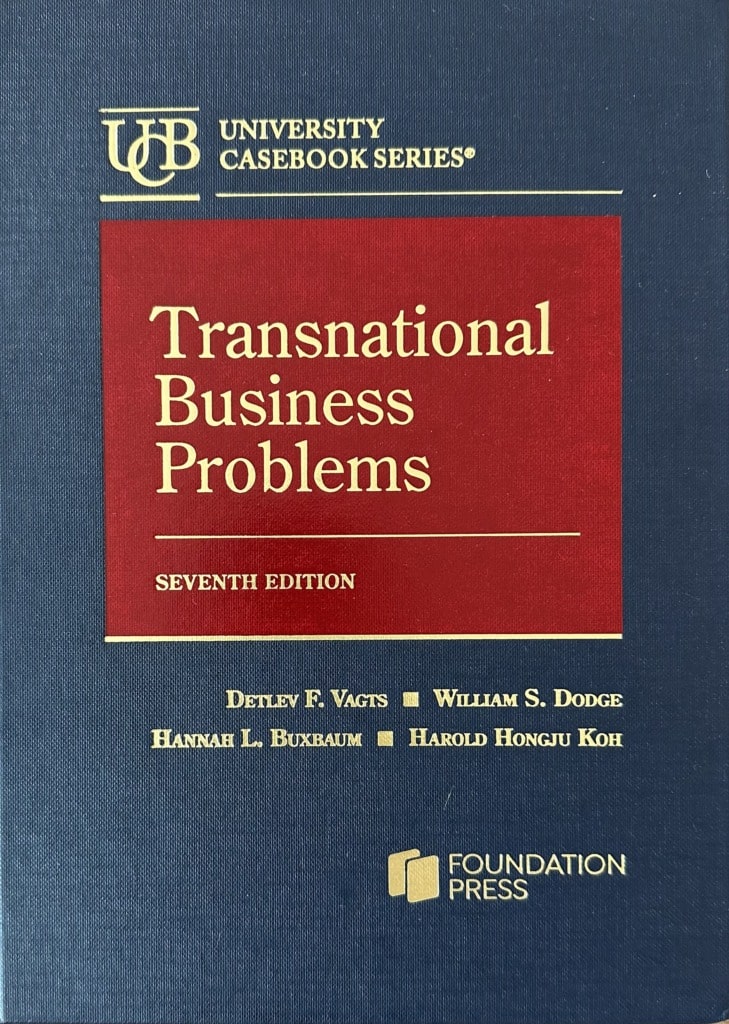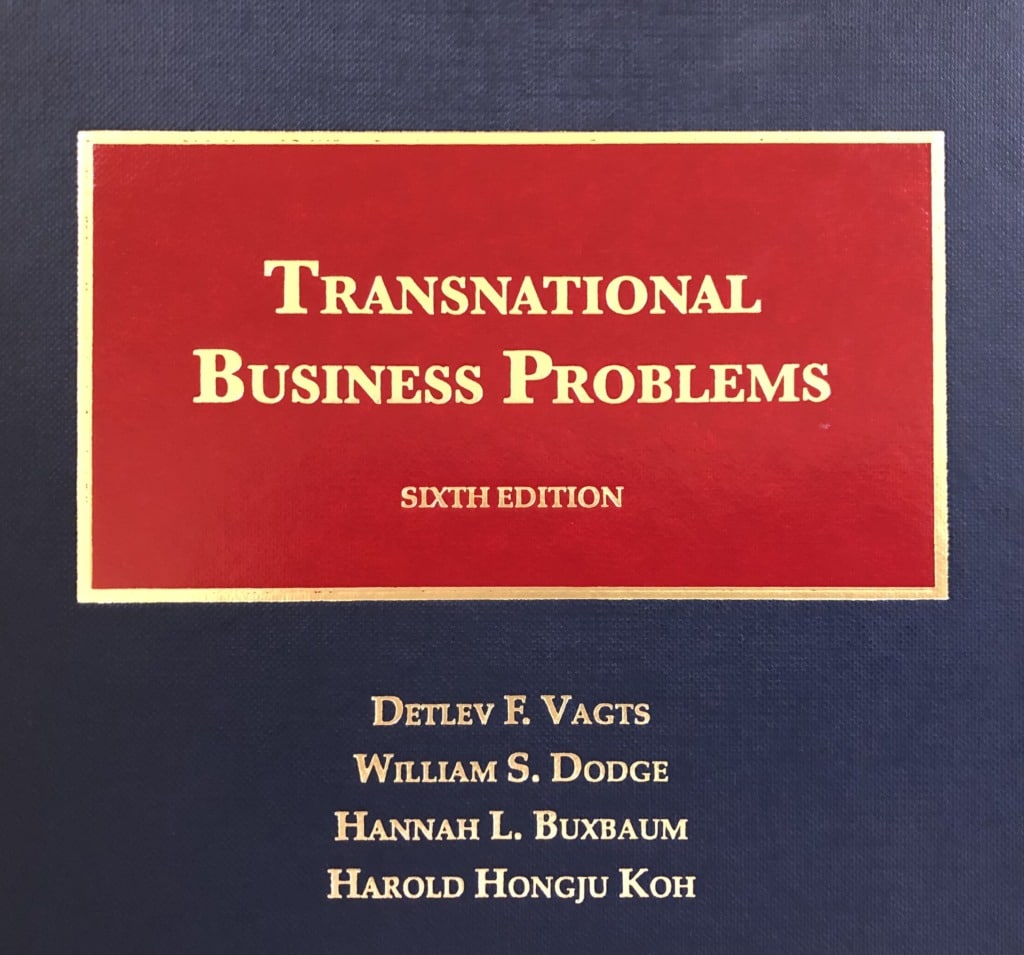Ninth Circuit Validates a Theory of Extraterritorial Antitrust Regulation in Global Price-Fixing Case
It is not easy for the foreign victims of global price-fixing schemes to assert viable claims under U.S. antitrust law, even when the conspiracy in question also affects U.S. markets. In a recent case, though, the Ninth Circuit vacated an order of summary judgment against the foreign purchasers of price-fixed goods, concluding that they had…
Continue ReadingUsing TLB to Teach International Business Transactions (2025 Update)
As the fall semester gets underway, we are updating our posts on using resources on TLB to teach various classes. This post discusses International Business Transactions (IBT). Although TLB focuses on litigation and IBT focuses on transactions, there is a great deal of overlap. The most obvious examples are contractual clauses that plan for dispute resolution,…
Continue ReadingSuing Over the Price of Gas
The Organization of Petroleum Exporting Countries (OPEC) was established in 1960 “to ensure the stabilization of prices by, among other means, the regulation of production.” On one level, OPEC is simply a cartel engaged in anticompetitive behavior. On another level, it is an organization of nation-states that plays a significant role in world politics. Since…
Continue ReadingUsing TLB to Teach International Business Transactions
As the fall semester gets underway, we are updating our posts on using resources on TLB to teach various classes. This post discusses International Business Transactions (IBT). Although TLB focuses on litigation and IBT focuses on transactions, there is a great deal of overlap. The most obvious examples are contractual clauses that plan for dispute resolution,…
Continue ReadingThrowback Thursday: Empagran’s Complicated Legacy
Twenty years ago tomorrow, on June 14, 2004, the Supreme Court handed down its decision in F. Hoffman-La Roche Ltd. v. Empagran S.A. The majority opinion, authored by Justice Stephen Breyer, interpreted the Foreign Trade Antitrust Improvements Act of 1982 (FTAIA) to preclude the application of U.S. antitrust law to injuries in other countries. Empagran…
Continue ReadingDistrict Court Rejects Forum Non Conveniens Motion in Haiti Price-Fixing Case
The plaintiffs in Celestin v. Martelly brought a class action alleging that Haitian President Michel Joseph Martelly hatched a scheme to impose fees and fix prices on money transfers, food remittances, and international calls to and from Haiti and that Haitian and U.S. companies joined the scheme in violation of U.S. antitrust law, the federal…
Continue ReadingThe New (Old) Presumption Against Extraterritoriality
The reach of U.S. law keeps changing. For decades—in fact, off and on for more than a century—U.S. courts have turned to the presumption against extraterritoriality to determine the geographic scope of federal statutes. When the presumption changes, so does the reach of U.S. law. And the presumption has changed a lot lately. Most recently,…
Continue ReadingA Primer on Foreign State Compulsion
Foreign state compulsion (also called foreign sovereign compulsion) is a doctrine allowing a U.S. court to excuse violations of U.S. law or moderate the sanctions imposed for such violations on the ground that they are compelled by foreign law. The doctrine arises most often when foreign law blocks compliance with U.S. discovery requests and in…
Continue ReadingThrowback Thursday: Timberlane Lumber Co. v. Bank of America
Although the relevant text of the Sherman Act remained unchanged for most of the twentieth century, courts’ interpretations of its extraterritorial reach fluctuated dramatically. In 1909, the U.S. Supreme Court adopted a territorial approach in American Banana, described in a recent post, holding that the Sherman Act applied only to anticompetitive conduct in the United…
Continue ReadingComparing Extraterritoriality in the EU
How a court decides whether a statute applies extraterritorially is a fundamental question in transnational litigation. TLB has lots of information about the U.S. approach. Our Primer on Extraterritoriality describes the federal and state approaches, as well as the customary international law rules on jurisdiction to prescribe. Recent posts have discussed the extraterritorial application of…
Continue Reading







